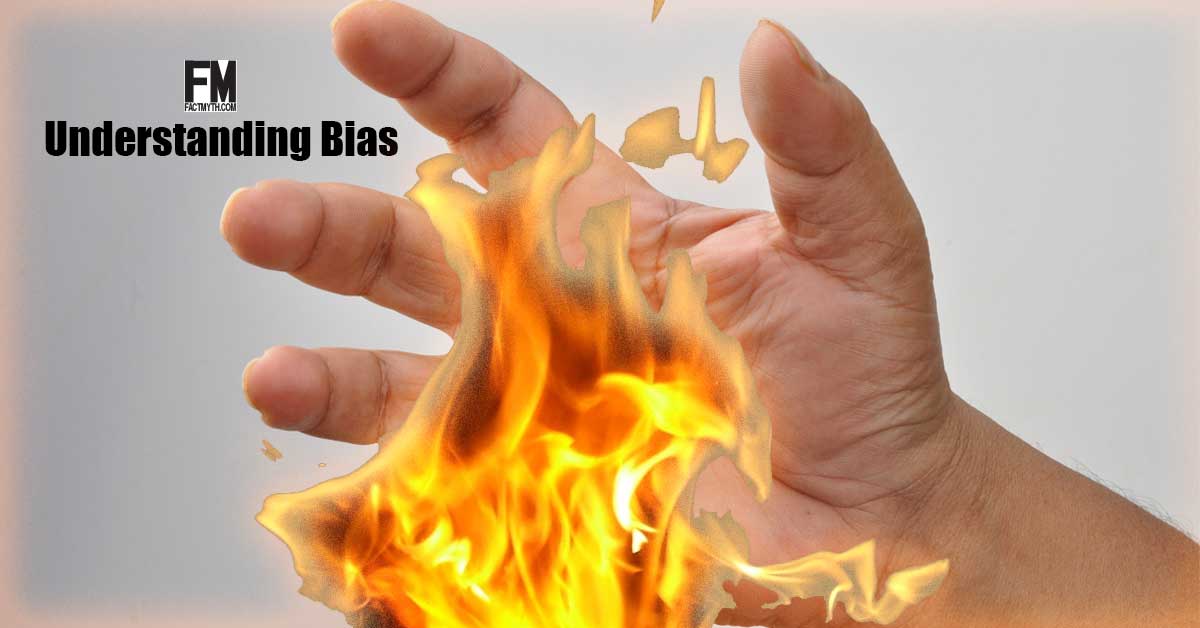Understanding Explicit Bias and Implicit Bias

Everybody’s Got an Attitude, Based on Experience: Implicit Bias, Explicit Bias, and Attitudes
Explicit bias is conscious bias; implicit bias is subconscious bias. Everyone has natural implicit and explicit “cognitive” bias. It’s part of being human and what shapes our actions and attitudes.[1][2][3][4][5][6]
However, bias being natural is not an excuse to engage in bias driven action.
Explicit bias can, and often should be, “checked” (self-censored and restrained) as a matter of respect. It is conscious and controllable.
Meanwhile, implicit bias is more complex due to its ingrained and subconscious nature.
We don’t expect a person to think of all others as equal, but we generally expect respect to be shown in polite society.
Below we examine the nature of implicit and explicit bias and illustrate some differences.
Implicit vs. Explicit Attitudes. Attitudes and biases are nearly synonymous in this context. In other words, we don’t mean “bias” as a scary judgment call, we mean that our cognitive process is a system of forming biases and thus it is important.Implicit Bias is Natural
Our cognitive process is a process of forming implicit biases.
In other words, implicit bias is normal, natural, and often unavoidable process that is directly equatable to learning in terms of “nurture” and instinct in terms of “nature” (we can be thought to have both instinctual and learned implicit bias).
We learn fire is hot and create a bias against being burned by it; we learn eating makes us feel good and develop a bias toward it; we naturally and instinctually biased toward our in-group (like our mothers) and bias against our out-group (like strangers), etc.
These implicit biases formed from nature and nurture are very natural in general, and even when they aren’t purely “natural” (like if we grew up in a cult or always watch the same opinionated “news” channel), they are natural to our experience.
We aren’t consciously programming ourselves with an implicit bias; we are programmed subconsciously due to our genetics or environment.
Thus, we have to be careful not to judge others or ourselves too harshly in terms of natural implicit bias.
Understanding unconscious bias. Unconscious or “implicit” bias is the root of nearly all bias. It is simply your programming based on experience. See neuroplasticity and how memory works.Explicit Bias is Understandable and Often Helpful
However, conscious, explicit bias is another story. Our explicit bias is informed by our implicit bias but is also at least part a conscious choice.
I explicitly stay away from fire because I have a bias against fire. I explicitly see menacing-looking strangers and cross the street because I fear strangers. There is nothing abnormal about that, but I have explcitly and consciously made a bias choice, and thus the bias is explicit.
When things go awry in terms of social relations, especially in regards to how we treat out-groups, it is often because we fail to “check” our explicit bias.
Where our internal bias forms our opinions our external bias shows in Puebla actions.
Hitler’s Germany committed genocide. It was fear, bias, and an inability to resist authority that facilitated this. You could say that it was a natural system of bias that was exploited by a despotic tyrant and resulted in the deaths of tens of millions (economic inequality in post-WWI Germany aside).
Components of Attitudes. We ask you to be aware of your attitude and “check” your manners. You can feel your -ism toward another person, but polite society is more concerned with how you act than what you think. With that in mind, here is a video on the aspects of attitudes. To examine bias correctly, we need to look at how our experience shapes our thinking and our actions.TIP: Propaganda can shape our attitudes without us even realizing we have formed a bias. Given this, part of “checking” yourself involves thinking critically to distinguish between emotion and fact and to check your facts. Propaganda is all about emotion, not fact. Learn more about the types of truth.
How to Check Yourself Before You Wreck Yourself. Your Duty as a Citizen and the Implicit Rules of the Social Contract
So what is “checking?” It is simply critical thinking, doing a double take, and putting yourself in another set of shoes?
I may have been taught that people of a different hue are dangerous, but this can easily lead to morally and ethically intolerable behavior. I can’t explain to you why racism is bad and this isn’t the point of this page. However, I can tell you that it is bad manners to display explicit racism toward strangers.
Bias is complex and comes in two general forms, explicit and implicit. We can have tolerance for implicit bias and tolerance for explicit bias, but the threshold for tolerating explicit bias need be much lower than the threshold for explicit bias in order for society to function smoothly. We don’t restrict individual liberty by addressing bias through our culture. We need to prevent collective bias from leading to the oppression of minorities and other violations of the social contract. Checking explicit bias and addressing root causes of implicit bias are not attacks on individual liberty. These processes defend social liberty against tyranny.
Prejudice & Discrimination: Crash Course Psychology #39.